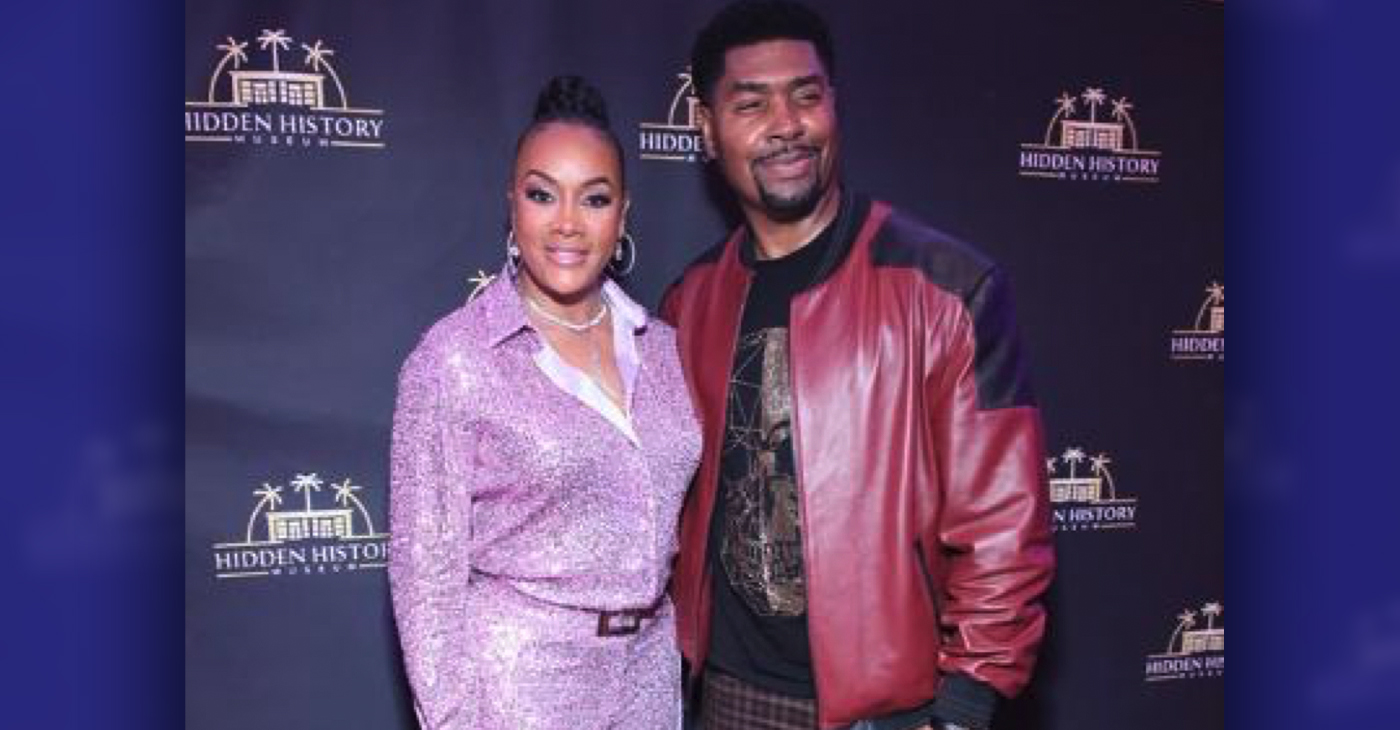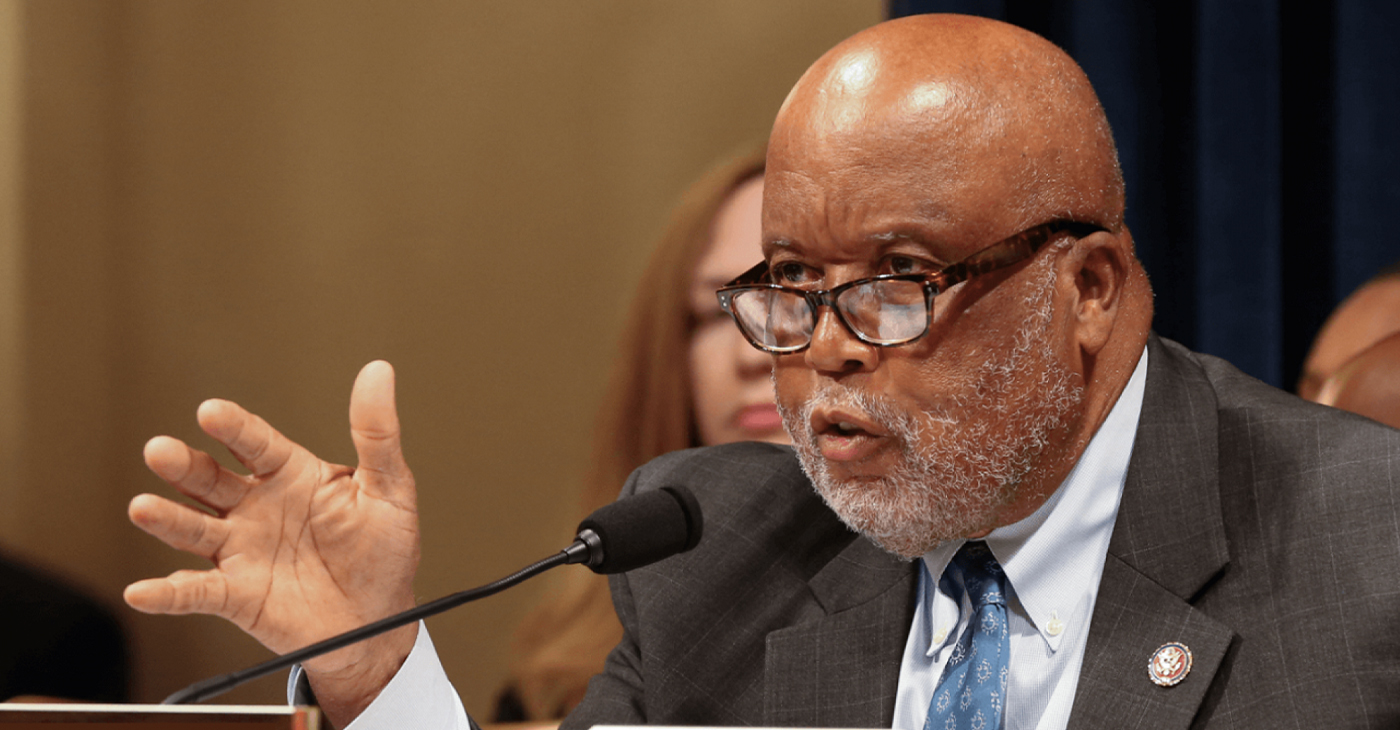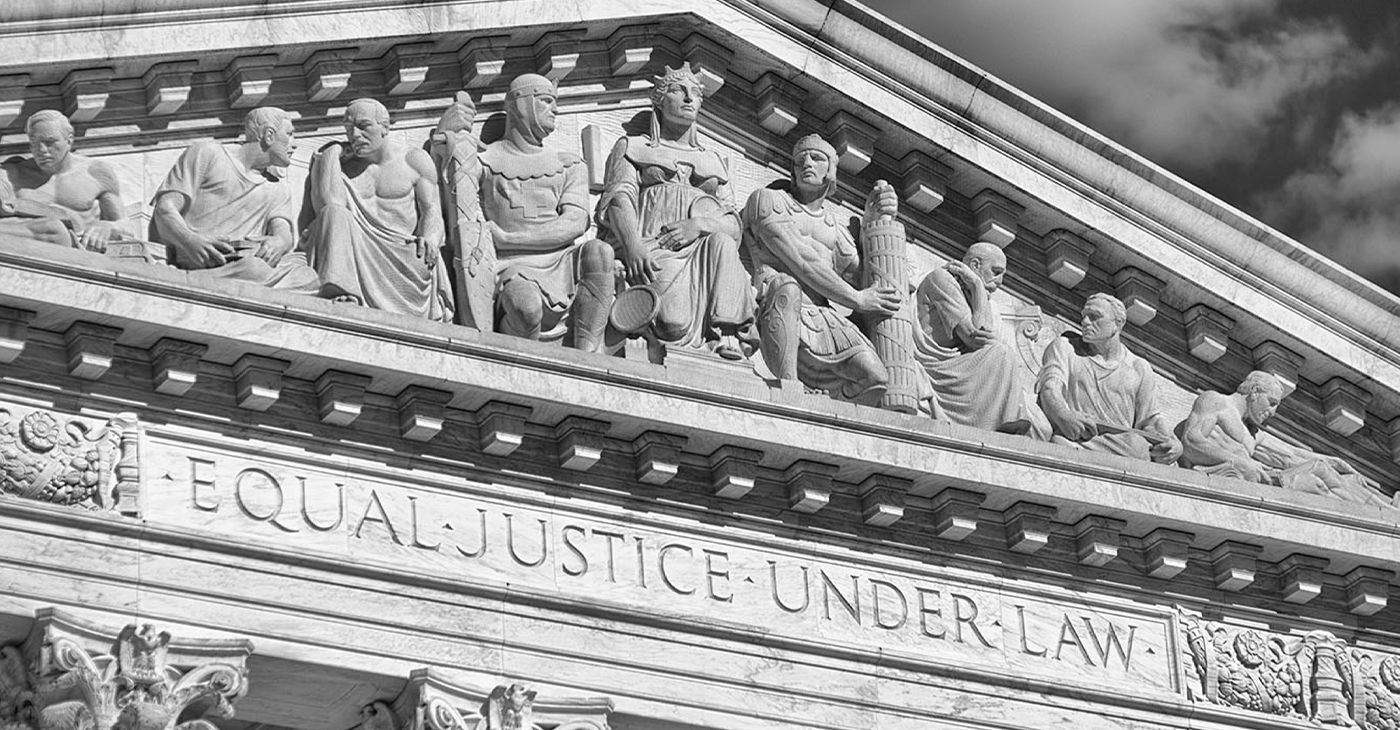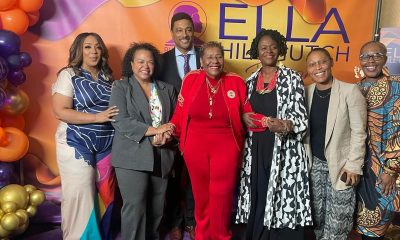Black History
Hidden History Black Museum Opens in Los Angeles
Various actors and celebrities such as Vivica A. Fox, and hundreds of other people, were on hand to celebrate the last weekend of Black History Month. Founded by Tariq Nasheed, an award-winning documentary film producer and New York Times best-selling author, the Hidden History Museum highlights current and past historical Black figures from freedom fighters, to inventors, master teachers, to founding pioneers in Black California, as well as Hip-Hop culture on the West Coast.

By Lee Hubbard
While the rain stormed down all day in the Jefferson Park area of Los Angeles, it could not damper the excitement of the grand opening of the Hidden History Museum of Black culture, this past weekend.
Various actors and celebrities such as Vivica A. Fox, and hundreds of other people, were on hand to celebrate the last weekend of Black History Month. Founded by Tariq Nasheed, an award-winning documentary film producer and New York Times best-selling author, the Hidden History Museum highlights current and past historical Black figures from freedom fighters, to inventors, master teachers, to founding pioneers in Black California, as well as Hip-Hop culture on the West Coast.
One example of this is an exhibit that looks at the naming of the state California, which was named after Califa, a queen who was a Black Moor. The Spanish writer Garci Rodriguez wrote the novel in 1500, and although Califa was a fictional character, when Juan Rodriguez Cabrillo, founded it in 1542, he named the area after the character in the novel.
“Stories like this are featured in the museum and it’s needed,” said Utopia Hammond, a San Francisco resident, who came to the grand opening. “People need to know our Black history and this museum features things and people that aren’t normally talked about and or featured in other museums.”
“I decided to start this museum after I was driving down Crenshaw Boulevard and saw that people were using the site where Nipsey Hussle got shot and killed as a tourist attraction,” said Nasheed. “On any given day, you can see crowds of people taking pictures in front of the mural that has Nipsey’s face on it.”
Hussle was a popular and emerging rap artist who was just coming into national acclaim when he was shot down in front of his clothing store March 31, 2019. The makeshift Nipsey Hussle memorial and daily scene behind it pushed Nasheed to create a place where people can see positive affirmations of black culture and tell the stories of black history that aren’t told.
“We need to create institutions that we as Black people and or Black groups own and control the narrative,” said Nasheed.
People came from all over the country for the grand opening. They also got to watch the premiere of Nasheed’s new documentary film, “American Maroon,” which looks at the Black people who maintained hidden communities while fighting with slave-owning colonizers pre- Civil War.
Nasheed spent just under $2 million to build the Hidden History Museum. Half of the money was raised in a month by a Black grassroots crowdfunding effort Nasheed started using his YouTube channel Tariq Radio, and other social media platforms. This, along with some of his personal funds were used to buy the building that houses the museum.
“The Black grassroots supported my vision and this effort,” said Nasheed. “We wanted to have the museum over in Leimert Park, a black district in LA, but when we tried to buy property there were several roadblocks, before we got to Jefferson Park.”
The Hidden History Museum is located at 2131 W Jefferson Blvd. in Los Angeles Ca. For more information, go to www.hiddenhistorymuseum.com
Activism
Oakland Post: Week of December 18 – 24, 2024
The printed Weekly Edition of the Oakland Post: Week of December 18 – 24, 2024

To enlarge your view of this issue, use the slider, magnifying glass icon or full page icon in the lower right corner of the browser window. ![]()
Activism
‘Donald Trump Is Not a God:’ Rep. Bennie Thompson Blasts Trump’s Call to Jail Him
“Donald Trump is not a god,” U.S. Rep. Bennie Thompson, D-Miss., told The Grio during a recent interview, reacting to Trump’s unsupported claims that the congressman, along with other committee members like vice chair and former Republican Rep. Liz Cheney, destroyed evidence throughout the investigation.

By Post Staff
U.S. Rep. Bennie Thompson, D-Miss., said he not intimidated by President-elect Donald Trump, who, during an interview on “Meet the Press,” called for the congressman to be jailed for his role as chairman of the special congressional committee investigating Trump’s role in the Jan. 6, 2021, mob attack on the U.S. Capitol.
“Donald Trump is not a god,” Thompson told The Grio during a recent interview, reacting to Trump’s unsupported claims that the congressman, along with other committee members like vice chair and former Republican Rep. Liz Cheney, destroyed evidence throughout the investigation.
“He can’t prove it, nor has there been any other proof offered, which tells me that he really doesn’t know what he’s talking about,” said the 76-year-old lawmaker, who maintained that he and the bipartisan Jan. 6 Select Committee – which referred Trump for criminal prosecution – were exercising their constitutional and legislative duties.
“When someone disagrees with you, that doesn’t make it illegal; that doesn’t even make it wrong,” Thompson said, “The greatness of this country is that everyone can have their own opinion about any subject, and so for an incoming president who disagrees with the work of Congress to say ‘because I disagree, I want them jailed,’ is absolutely unbelievable.”
When asked by The Grio if he is concerned about his physical safety amid continued public ridicule from Trump, whose supporters have already proven to be violent, Thompson said, “I think every member of Congress here has to have some degree of concern, because you just never know.”
This story is based on a report from The Grio.
Activism
Biden’s Legacy Secured with Record-Setting Black Judicial Appointments
His record surpasses previous efforts by his predecessors. President Jimmy Carter appointed 37 Black judges, including seven Black women. In stark contrast, Donald Trump’s first term resulted in only two Black women appointed out of 234 lifetime judicial nominations. The White House said Biden’s efforts show a broader commitment to racial equity and justice.

By Stacy M. Brown
WI Senior Writer
President Joe Biden’s commitment to diversifying the federal judiciary has culminated in a historic achievement: appointing 40 Black women to lifetime judgeships, the most of any president in U.S. history.
Biden has appointed 62 Black judges, cementing his presidency as one focused on promoting equity and representation on the federal bench.
His record surpasses previous efforts by his predecessors. President Jimmy Carter appointed 37 Black judges, including seven Black women. In stark contrast, Donald Trump’s first term resulted in only two Black women appointed out of 234 lifetime judicial nominations.
The White House said Biden’s efforts show a broader commitment to racial equity and justice.
Meanwhile, Trump has vowed to dismantle key civil rights protections, including the Justice Department’s Civil Rights Division.
“Having the Black woman’s experience on the federal bench is extremely important because there is a different kind of voice that can come from the Black female from the bench,” Delores Jones-Brown, professor emeritus at John Jay College of Criminal Justice, told reporters.
Lena Zwarensteyn of the Leadership Conference on Civil and Human Rights told reporters that these district court judges are often the first and sometimes the final arbiters in cases affecting healthcare access, education equity, fair hiring practices, and voting rights.
“Those decisions are often the very final decisions because very few cases actually get heard by the U.S. Supreme Court,” Zwarensteyn explained.
Biden’s nomination of Justice Ketanji Brown Jackson to the Supreme Court further reflects his commitment to judicial diversity. Jackson became the first Black woman to serve on the nation’s highest court.
Patrick McNeil, spokesperson for the Leadership Conference, pointed out that over half of Biden’s Black female judicial appointees have backgrounds as civil rights attorneys and public defenders, experience advocates consider essential for a balanced judiciary.
Meanwhile, Congress remains divided over the expansion of federal judgeships. Legislation to add 66 new judgeships—approved unanimously by the Senate in August—stalled in the GOP-controlled House until after the election. House Republicans proposed distributing the new judgeships over the next decade, giving three administrations a say in appointments. President Biden, however, signaled he would veto the bill if it reached his desk.
Rep. Jerry Nadler, D-N.Y., argued the delay was a strategic move to benefit Trump’s potential return to office. “Donald Trump has made clear that he intends to expand the power of the presidency and giving him 25 new judges to appoint gives him one more tool at his disposal,” Nadler said.
-

 Activism4 weeks ago
Activism4 weeks agoOakland Post: Week of November 20 – 26, 2024
-

 Activism4 weeks ago
Activism4 weeks agoAn Inside Look into How San Francisco Analyzes Homeless Encampments
-

 California Black Media4 weeks ago
California Black Media4 weeks agoCalifornia to Offer $43.7 Million in Federal Grants to Combat Hate Crimes
-

 Black History4 weeks ago
Black History4 weeks agoEmeline King: A Trailblazer in the Automotive Industry
-

 California Black Media4 weeks ago
California Black Media4 weeks agoCalifornia Department of Aging Offers Free Resources for Family Caregivers in November
-

 California Black Media4 weeks ago
California Black Media4 weeks agoGov. Newsom Goes to Washington to Advocate for California Priorities
-

 Activism4 weeks ago
Activism4 weeks agoOCCUR Hosts “Faith Forward” Conference in Oakland
-

 Activism3 weeks ago
Activism3 weeks agoOakland Post: Week of November 27 – December 3, 2024

















































